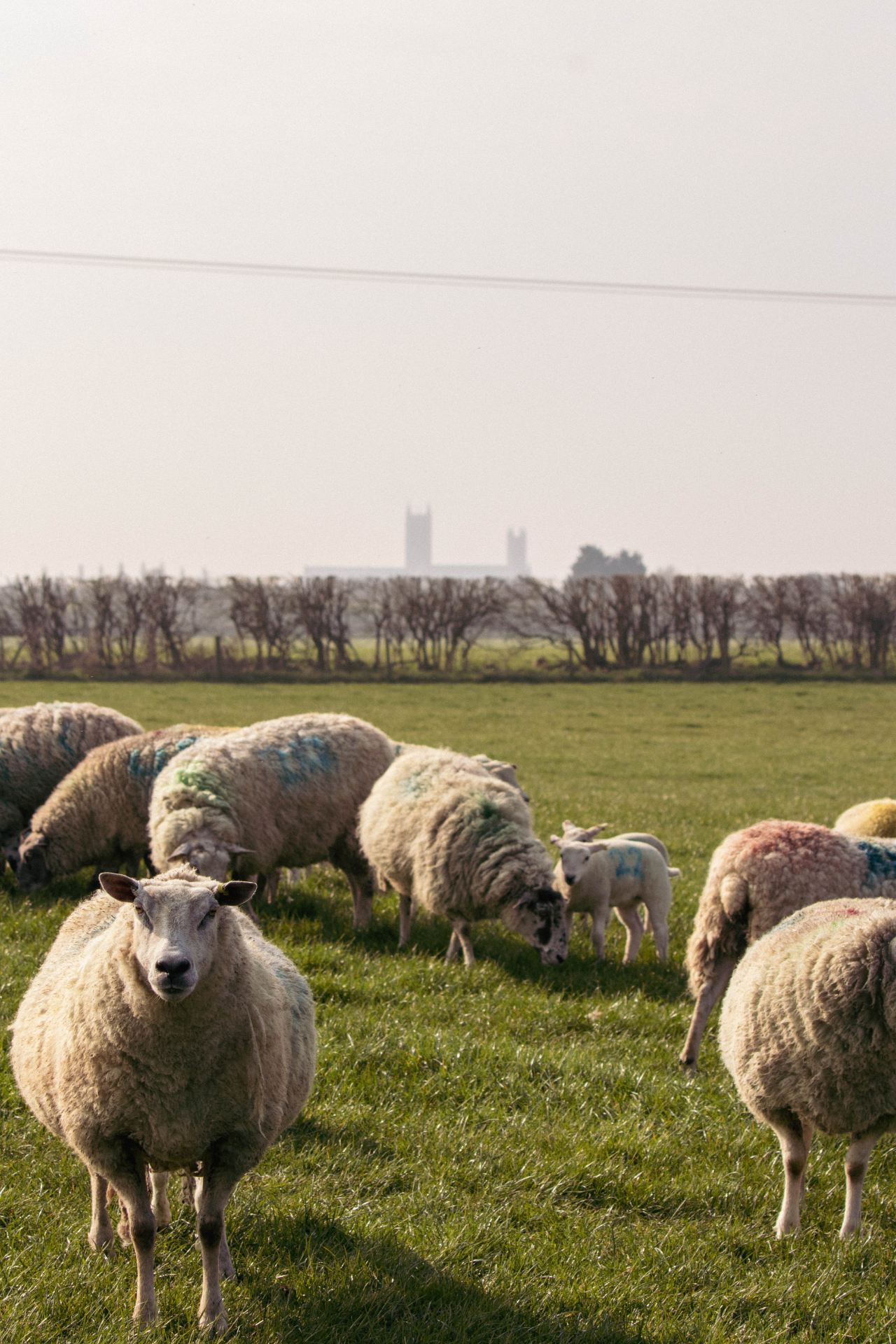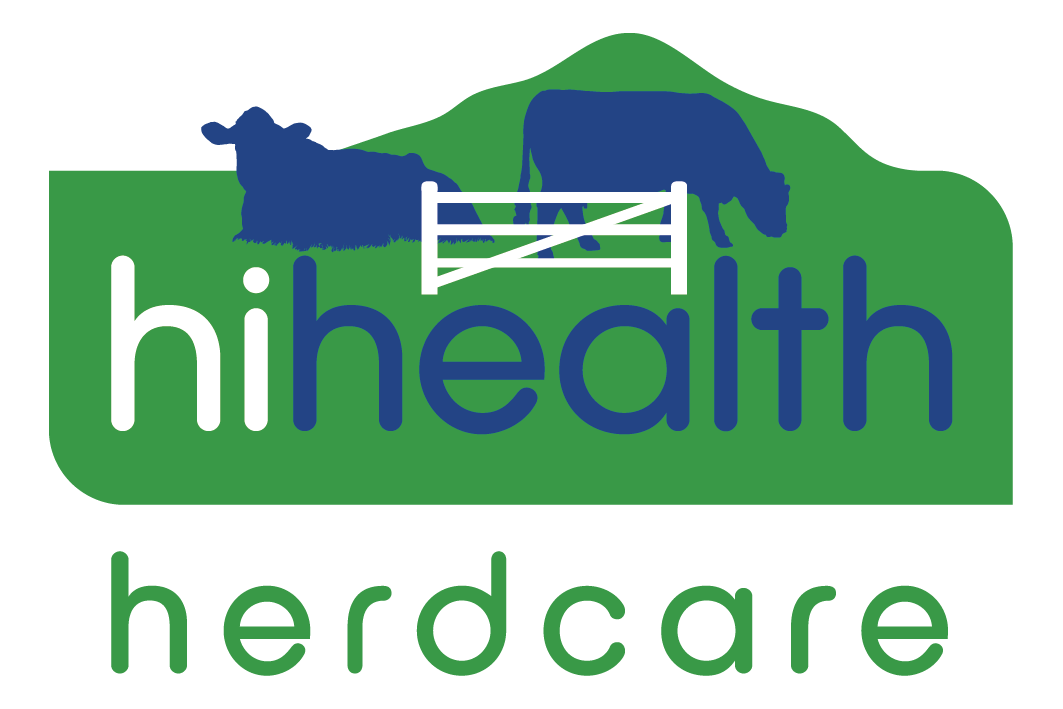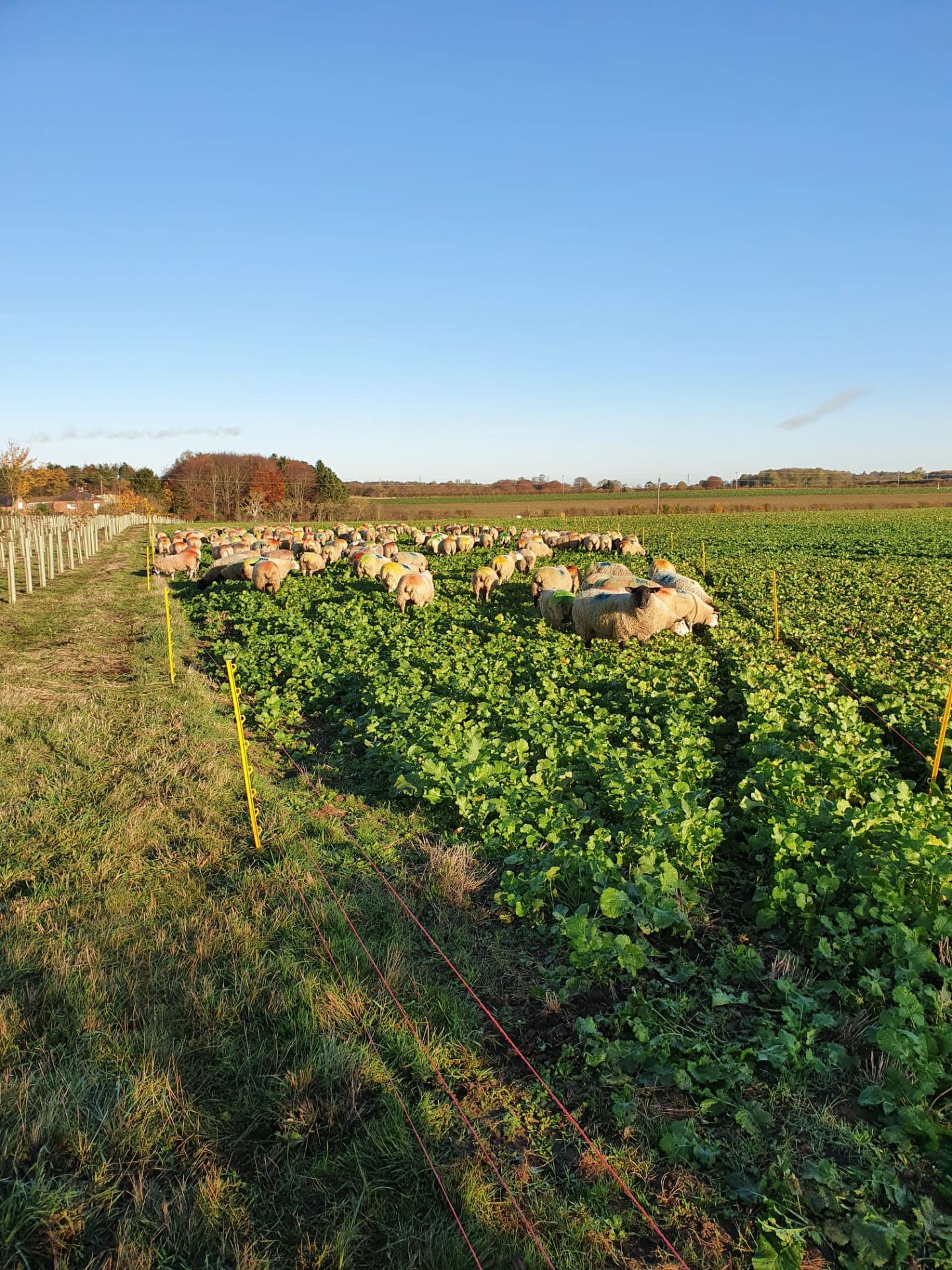
Riseholme Park Farm is home to our Lincoln Reds, and sheep flock including our Lincoln Longwools, of which there are less than 700 breeding ewes left, at the University of Lincoln.
Our cattle herd consists of Lincoln Reds, one of the oldest of the UK’s Native Breeds of beef cattle, and British Blue x Lincoln Reds.
Our sheep flock includes:
- Lincoln Longwools
- Suffolk x mules
- North Country x mules
- Texel x
- Swaledale x blue leicester
The infrastructure of the farm has seen significant capital investment over the last few years, including the installation of a new roundhouse and lambing shed.
Riseholme Park Farm is also used to support agricultural education at Riseholme College and the University of Lincoln. Visits are welcome but must be organised in advance by emailing RiseholmeParkFarm@lincoln.ac.uk
About our farm
Riseholme Park Farm is made up of 200 Ha of arable and grassland and is home to the Riseholme herd of Lincoln Reds and Riseholme flock of commercial sheep.
All of our livestock graze the historic parkland surrounding Riseholme Hall. To preserve the important heritage features underneath the grass, a large amount of the land cannot be cultivated. Grassland is also a great carbon store, it is important it is managed well to maintain it. Our livestock convert this grass into a naturally grown, high quality, sustainable meat product.
Our beef and lamb is all red tractor assured, ensuring everything we do is to the highest standard. All of our sheep and cattle are individually recorded from day of birth with all actions recorded to that animal. All of our animals receive a bespoke vaccination programme unique to them to keep them as healthy as possible throughout their life.
We are accredited members of the Biobest HiHealth Herdcare scheme for all of our cattle. 
Using technology to monitor our cattle
All of our cattle have a bolus (Electronic recording device) sitting in their reticulum (the second stomach on a cow). This bolus is constantly taking measurements from our cows to ensure they are at the highest health they possibly can be.
The bolus records Rumination time (The length of time cattle chew their feed), if this is too low it can lead to digestion problems.
Temperature and water intake, if an illness can be picked up by a slight increase in temperature, it can be prevented/ treated before the animal shows any physical signs of illness – reducing recovery time and potentially preventing illness all together.
Activity is monitored for health reasons, also for signs of heat in the animal. Activity significantly increases at the time of heat, along with temperature.
All of the information is stored on an app which sends alerts to the phone if any animal is out of normal parameters.
Local, sustainable, farm produce
We have worked hard to source natural and sustainable packaging for our produce, the liners are 100% wool. These are sourced from Woolcool. Wool is one of the most sustainable natural products available, being a by-product of sheep. The liners are compostable and fully biodegradable. Even better, Woolcool have some great ideas on how to reuse this after you’ve done with it: Woolcool Recycling Ideas

Our meat is processed and butchered all within Lincolnshire, keeping food miles to an absolute minimum.
Regenerative Agriculture at Riseholme
 Regenerative agriculture is important at Riseholme Park Farm, with one of our main aims to ensure a crop is in the ground as near to 365 days a year as possible.
Regenerative agriculture is important at Riseholme Park Farm, with one of our main aims to ensure a crop is in the ground as near to 365 days a year as possible.
Crops are actively carbon sequestrating while they are growing, by replacing crops as soon as possible it promotes carbon sequestrating as much of the year as possible. This also prevents any nutrients being lost over winter in bare soil from previous crops.
Cover crops are used between harvested crops, these are quick growing crops which livestock can graze, this is important as we are providing an alternative feed for the livestock when grass is resting in winter and also providing nutrients straight onto the land from the sheep.
All of our winter feed for the livestock is made on farm and all straw used for bedding from our crops on the farm, this is then returned to the fields as muck the following year to be used as a fertiliser to grow more crops.
Show preparation
Our show cattle and calves are fed on Blankney Fibre Feeds, which is a natural feed pellet made from grass, cereal and peas which is all grown at Blankney, less than 15 miles from our farm. The feed is made using minimal ingredients and all fully traceable, our cattle find it highly palatable and have a natural shine on it like being out on grass.
Meet the team
Our Riseholme team:
- Matt Bagley – Farm and Estate Manager
- Lizzy Wells – Assistant Farm Manager
- Alexandra Foxley-Johnson – Riseholme Coordinator
- Andrew Moore – Horticultural Unit Manager
- Daniel Townley – Senior Groundsperson
- Lewis Bromfield – Groundsperson